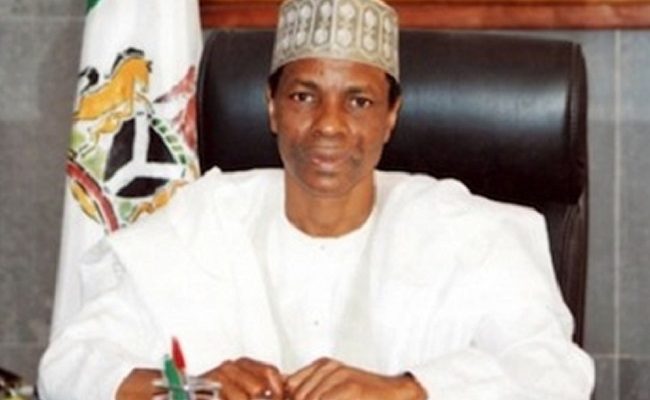WITH the process of amending the constitution expected to gather momentum in 2025, some political leaders have differed with legal luminaries over their advocacy of a six-year single term for president and governors in the country to check frictions often associated with political transition programmes.
Deputy president of the Senate, Senator Barau Jibrin, had promised on February 22, 2024 that the joint Committee of the Senate and the House of Representatives on the Review of the 1999 Constitution will complete the assignment in December next year.
Also, the Deputy Speaker of the House of Representatives, Honourable Benjamin Kalu, had said the National Assembly will consider 161 areas in the constitution.
Two Senior Advocates of Nigeria (SAN): Chief Wole Olanipekun and Chief Yusuf Olaolu Ali underscored the option of a six-year single term as opposed to the existing two terms of four years each for president and governors, which they noted is associated with infighting over succession in office.
Ali dismissed the fear in certain circles that the proposal is capable of throwing up an inept leadership, saying the impeachment clause in the constitution will take care of such situation if it arises.
But while a former Minister of Agriculture and Water Resources, Alhaji Mukhtar Shagari is in support of the idea, other politicians cautioned against the idea because of the inherent demerits.
Shagari backed the proposal because he believes that it will guarantee commitment of the beneficiaries to fulfilling their pre-election promises to the people.
“One single term will make elected officials to concentrate on delivering and fulfilling their promises in order to leave a lasting legacy,” Shagari stated.
However, the national chairman of the African Democratic Congress (ADC), Chief Ralph Okey-Nwosu, disagreed that the proposal could address the perceived inadequacies in the existing system of two terms of four years each for president and governors.
He said the crisis in the polity is all about the psyche of Nigerian politicians, who are wired to subvert all processes and undermine established institutions and principles designed to guarantee an efficient and effective system.
He stated, “There’s nothing wrong with two terms of four years each, but everything is wrong with our politicians.
“Give them a single term of six years or 10 years, they will abuse it. Our politicians can deconstruct any system or institution; this deconstruction is not for public good but for personal aggrandizement and their idiosyncrasy. Unfortunately, though, it is the truth.
“Look at what is happening with the appointment of vice chancellors of government universities. They serve for only one term, but it has become a voodoo race. Tenures, whether two or three or nine years, once or thrice will become a non-issue.”
Similarly, a chieftain of the pan-Yoruba socio-cultural and political organisation, Afenifere, Chief Supo Shonibare, said weak institutions, coupled with disdain for the rule of law is the albatross for the country.
Shonibare, a politician and legal practitioner, said term limits do not cure the defect in a polity which appears to tolerate prebendalism as an unavoidable and acceptable tool for governance.
He lamented that Nigerians have witnessed deliberate actions by ruling parties since 1999 to stifle democracy by sponsoring factions in other political parties through the use of the judiciary.
He further said: “While term limits of either one single term of six years or two-term four years tenure; which we currently have may be useful, my view is that term limits do not cure the defect in a polity which appears to tolerate prebendalism as an unavoidable and acceptable tool for governance.
“Strengthening democratic institutions should be our focus in the discourse on the path to building a stable polity. The Judiciary is an essential arm of governance. It needs to be independent, credible and be comprised of individuals with integrity. A corrupt judiciary completely negates the jurisprudential concept that it’s only by adhering to the rule of law that one can ever begin to foster a stable democratic polity.
“Courts need to ensure that laws are equally applied to all citizens; including government officials.
“The integrity of the electoral process must also be transparently free & fair so that the credibility of the entire process is not impeached. The critical institution in strengthening pluralism is the Electoral Commission. We have witnessed what appears to be the machination of ruling parties since 1999 to stifle democracy by sponsoring factions in political parties, using the judiciary as a willing tool.
“Our ability to overcome all these malpractices will foster a more stable polity, irrespective of whether we have a six-year fixed tenure or continue with our present two-term limits for political office holders.
“If the process of electing our representatives at all levels is credible, then it’s the people who will determine the tenure of their representatives and not even statute.”
A former Minority Whip Leader in the House of Representatives, Dr Wunmi Bewaji, also speaking on the proposal, traced the idea to the attempted Third Term agenda of the Obasanjo presidency.
He noted: “The clamour for a six-year single term for president and governors was a byproduct of the Obasanjo’s failed third-term agenda. A lot people may not realise this that in 2906 after it became apparent that the third term was doom to fail, there was a last-minute attempt by that regime to salvage the situation by saying that the tenure of the president should be extended by an extra two years and that this extra two years should be extended to both the president and the governors.”
He cautioned against the advocacy for a six-year single term because of the far-reaching serious implications for the country.
“For example, citizens will be deprived of the opportunity to reward a president or governor for good performance or to punish a president or governor for bad performance. That is very critical in any democracy. The people should be the centre-piece of that arrangement.
“A single tenure could encourage reckless behaviour because of lack of accountability as an elected individuals would have nothing at stake knowing full well that he is not going back to renew his mandate and that voters are not going to have the opportunity to either punish him or reward him at the polls.
“It could lead to the emergency of surrogate regimes; someone can start grooming a successor by deploying state resources.
“It is too early to start advocating six years’ single term; there is no problem that a single term can resolve,” Bewaji said.
READ ALSO: Despite disagreements, we’ll never throw chairs at Senate — Akpabio








